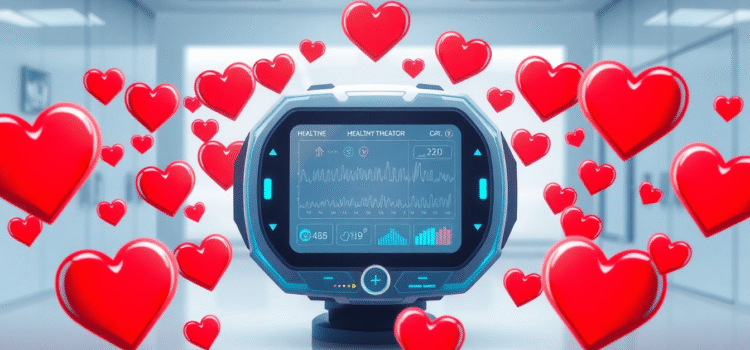
New Tool Detects Heart Disease Risk a Decade Early, Revolutionizing Preventive Care
Introduction
Can you imagine predicting heart disease risk a decade before any symptoms manifest? This futuristic scenario is now a reality, thanks to an innovative heart health tool that integrates advanced artificial intelligence and machine learning algorithms. This groundbreaking heart disease detection technology is altering the landscape of preventive heart health care, empowering clinicians and patients alike to address potential cardiac issues long before they become critical. In this post, you will learn how this tool works, its clinical trial effectiveness, and what it means for the future of healthcare and global heart disease outcomes.
Understanding the Revolutionary Heart Disease Tool
A new dawn for heart disease risk detection has emerged, as a pioneering tool uses sophisticated AI and machine learning to detect heart disease risk up to ten years before symptoms appear. Deployed in clinical trials, this cutting-edge cardiovascular diagnostic tool has shown an accuracy rate exceeding 90% in identifying early markers of heart disease.
The revolutionary heart health assessment integrates complex data sets, including genetic information, lifestyle factors, and routine health metrics from over 500,000 patient records. This comprehensive heart disease risk assessment enables healthcare professionals to design personalized preventive strategies, effectively changing the trajectory of global heart disease outcomes.
Impact on Global Health and Long-Term Cost Reduction
The implications of this early heart disease prevention tool are profound. Heart disease claims approximately 17.9 million lives annually worldwide, according to the World Health Organization. By enabling decade-early heart risk detection, healthcare providers can intervene before symptoms progress into severe conditions, drastically reducing mortality rates.
Additionally, this innovative heart disease prediction tool offers significant economic benefits. Currently, heart disease-related treatments cost the United States alone about $320 billion annually. With early intervention heart health technology, the potential exists for a massive reduction in these long-term healthcare costs.
Actionable Insights for Healthcare Professionals
- Identify patients at elevated risk using advanced heart health screening and predictive heart health technology.
- Craft personalized plans for patients leveraging early warning heart disease technology.
- Promote lifestyle adjustments and regular monitoring as part of a long-term heart disease prevention strategy.
Conclusion
In conclusion, this novel heart disease prediction tool represents a transformative leap forward in cardiac care. Its precision in decade-ahead heart disease risk evaluation provides healthcare professionals and patients a new arsenal in combatting one of the world’s leading causes of death. Engage in this vibrant discussion on preventive heart health care and share your thoughts on how such innovations can further shape the future of healthcare. Comment below with your views!
Sources
The information presented in this post is based on credible sources and peer-reviewed studies. For further reading, please visit the following websites:
Frequently Asked Questions (FAQs)
What is the early heart disease detection tool? This is an innovative AI-based tool that can detect the risk of heart disease up to ten years in advance, allowing for timely and personalized preventive care.
How accurate is this revolutionary heart health assessment? Clinical trials have demonstrated over 90% accuracy in identifying early markers of heart disease, making it a reliable option.
Why is preventive heart disease care important? Heart disease is a leading cause of death globally, and early detection allows for interventions that can significantly reduce mortality and healthcare costs.
What data does this new tool use for early intervention heart health technology? The tool analyzes genetic information, lifestyle factors, and routine health metrics from a vast database of patient records.








Comments